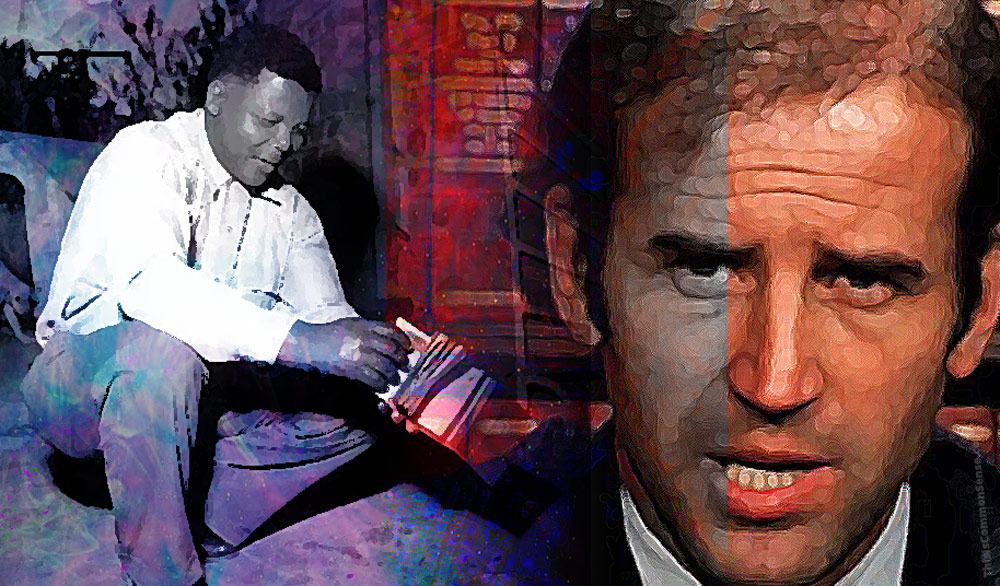People have been known to plagiarize college term papers. Even a few political speeches have been surreptitiously copied and brazenly re-orated without proper attribution. But you can’t plagiarize getting arrested, can you?
Not really. What you can do is lie about being arrested — just make it up out of whole cloth.
That may be what former Vice-President and once-upon-a-time Democratic Party presidential front-runner Joe Biden has been doing in recent days “as he confronts challenging political headwinds,” following fourth and fifth place finishes in Iowa and New Hampshire, respectively — though he came in (a distant) second in Nevada over the weekend.
“I had the great honor of meeting [Nelson Mandela],” Biden told a South Carolina crowd last week. “I had the great honor of being arrested with our U.N. ambassador on the streets of Soweto trying to get to see [Mandela] on Robbens Island.”
“No, I was never arrested,” U.N. Ambassador at that time, Andrew Young, now 87, told The New York Times, “and I don’t think he was, either.”
Back in 1977, Mr. Biden was Senator Biden from Delaware. Methinks the arrest of a U.S. Senator by a foreign government might spark at least a single news story. Be informed: “A check of available news accounts by The New York Times turned up no references to an arrest.”
The Times also notes that Biden “did not mention it in his 2007 memoir when writing about a 1970s trip to South Africa.”
Plagiarism sunk Biden’s 1988 presidential campaign. This time out, the politician’s gaffes, bouts of bizarre truculence, and age-related physical failings have hampered his quest. Add to all that, now, the apparent fact that Joe can’t even get arrested.
This is Common Sense. I’m Paul Jacob.
N.B. The upshot of the Biden candidacy may amount to nothing more than an increased interest in “the Mandela Effect.”

See all recent commentary
(simplified and organized)
See recent popular posts

